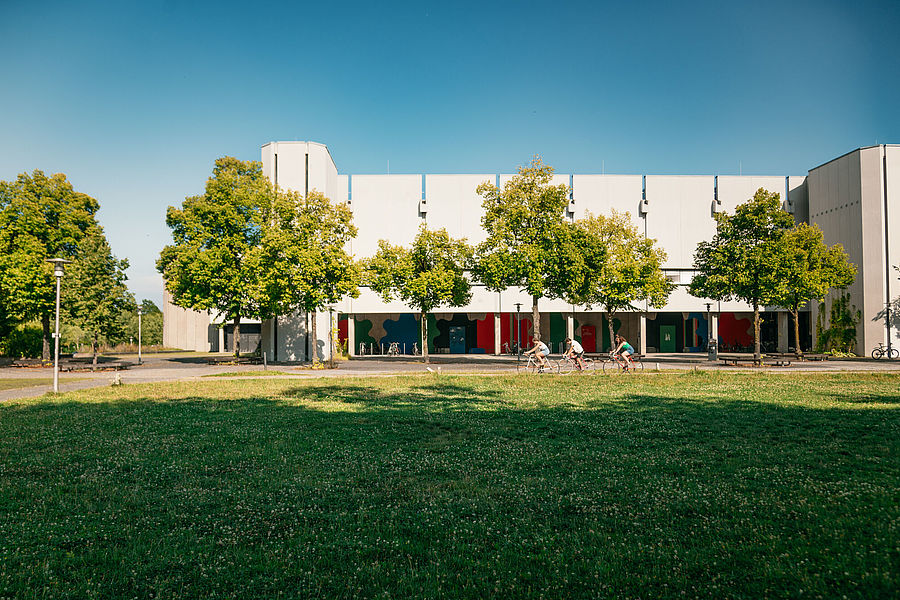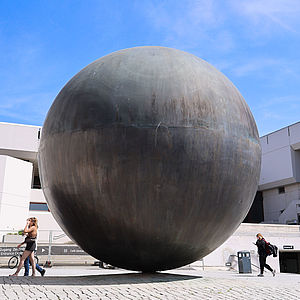#universityhighlights

International Top Placements
UR in Subject Rankings
# 90: Physical sciences and Engineering (Leiden Ranking, Indicator PPtop10%)
# 76-100: Dentistry & Oral Sciences (Global Ranking of Academic Subjects)
# 76-100: Mathematics (Global Ranking of Academic Subjects)
# 149: Mathematics and Computer Sciences (Leiden Ranking, Indicator PPtop10%)
# 151-200: Human Biological Sciences (Global Ranking of Academic Subjects)

National Top Placements
UR in Subject Rankings
# 2: Physical Sciences and Engineering (Leiden Ranking, Indicator PPtop10%)
# 2: Natural Sciences (DFG Funding Atlas, in relation to number of professorships)
# 4: Mathematics and Computer Sciences (Leiden Ranking, Indicator PPtop10%)
# 4-8: Dentistry & Oral Sciences (Global Ranking of Academic Subjects)
# 5-6: Mathematics (Global Ranking of Academic Subjects)
# 7-10: Education (Global Ranking of Academic Subjects)
Ranking Information
The Academic Ranking of World Universities (ARWU), also known as the Shanghai Ranking, has published the world's top 1,000 universities every year since 2003. It is one of the three most important international rankings in the world. The ranking is based primarily on research indicators, including the number of highly cited scholars and the number of articles published in prestigious journals. Teaching staff and alumni of the institution who have won a Nobel Prize or Fields Medal are also included in the ranking.
Since 2017, the Global Ranking of Academic Subjects (GRAS) has also been published. This ranking also includes many research indicators, such as the normalized number of citations. As an indicator of the internationalization of universities, the ranking also includes the number of publications with institutions from at least two participating countries.
Since 2010, the British company Quacquarelli Symonds (QS) has published an annual independent ranking, which is also one of the most important international rankings. The QS World University Ranking places particular emphasis on reputation surveys in science and business. In addition, bibliometric indicators, such as citations per faculty, as well as indicators of internationalization, such as the proportion of international students, are included in the ranking.
QS also publishes an annual Subject Ranking, which analyzes reputation indicators as well as the H-index of researchers and citations per publication.
The CWTS Leiden Ranking is published by the Center for Science and Technology Studies (CWTS) at Leiden University (The Netherlands) and focuses on the research performance of universities. It is based solely on bibliometric factors. Based on various indicators, a customized ranking list can be created, which can also be sorted according to size-related indicators.
The Leiden Ranking covers four main areas: research output, international cooperation, open access publications and the gender ratio of a university's publications.
The Alexander of Humboldt Ranking analyzes how many researchers came to Germany with the support of the Alexander of Humboldt Foundation in the last five years and at which universities they spent their research stay.
The number of funded researchers at universities is analyzed for the university as a whole and for the humanities and social sciences, life sciences, natural sciences, and engineering. The ranking is published every three years.
The DFG Funding Atlas (until 2012: DFG Funding Ranking) shows the total amount of publicly funded research in Germany. It is based on data from the PROFI (Project Funding Information System) database, which mainly covers federal funding in the civilian sector.
In the Funding Atlas, individual rankings are published for the university as a whole and for the four scientific fields of humanities and social sciences, life sciences, natural sciences, and engineering sciences. In addition, staff-related rankings are compiled for professors and scientists.





